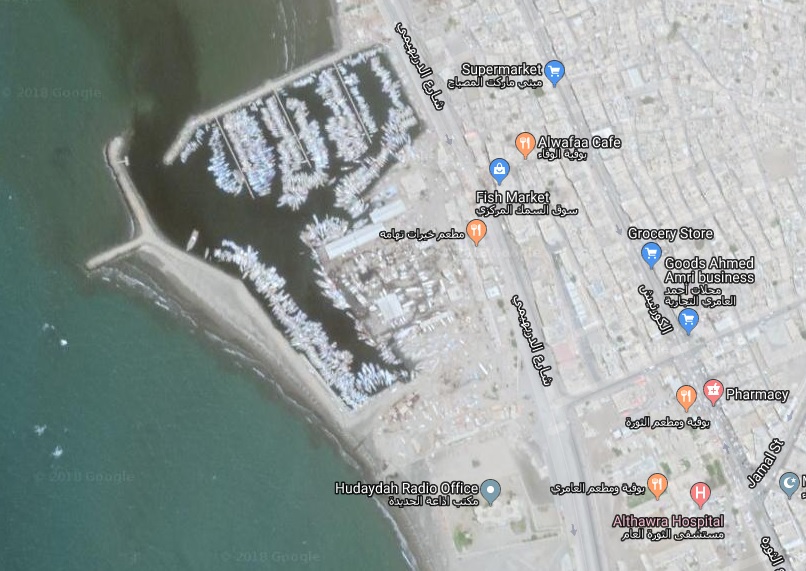
Saudi Arabia blamed rebels for two reported airstrikes on the Yemeni city of Hodeidah yesterday. More than 20 people died when the strikes hit a fish market and the entrance to a hospital, according to witnesses and medical staff.
Colonel Turki al-Malki, spokesman for the Saudi-led coalition that is fighting in Yemen, blamed the double bombing on the Houthi rebels who control Hodeidah along with much of northern Yemen.
Speaking on the Saudi-owned Alarabiya television, Malki denied the coalition had carried out "any operations" in Hodeidah on Thursday and claimed the Houthi militia were "behind" the deaths.
Although details of the attacks are scarce there is reason to question the Saudis' denial because they have a history of making denials in the Yemen conflict and retracting them later.
In October 2016, two Saudi-led airstrikes hit a large funeral gathering in the Yemeni capital, Sanaa, killing at least 140 people and injuring more than 500. It was the deadliest single attack of the war.
The Saudis' first official comment on the funeral attack was a categorical denial: "Absolutely no such operation took place at that target." They also insisted that coalition forces had "clear instructions" not to target populated areas.
Those claims quickly fell apart when a video emerged showing the attack. Two months later, the Saudis admitted they were at fault. An internal inquiry concluded that attack had failed to comply with the coalition's rules of engagement. It had been carried out without approval from the coalition command and without following the command’s "precautionary measures" to ensure that the location was not a civilian one.
The Saudis also spent several months denying the use of cluster munitions against Yemeni civilians, despite evidence from human rights organisations which showed the opposite. Britain, which had been supplying some of the munitions, eventually raised concerns – at which point the Saudis made an admission (of sorts) by saying they would stop using cluster bombs made in Britain.
In a surreal interview in 2016, General Ahmad Asiri, the coalition's spokesman at the time, was asked about an attack on a village marketplace in Yemen that killed at least 97 people, including 25 children.
Human Rights Watch had sent two investigators who interviewed 23 witnesses and recorded a video at the scene.
Bizarrely, though, Asiri insisted that Human Rights Watch had never been there. "No," he told the interviewer. "No one can get in Yemen without the permission of the coalition."
Belkis Wille, one of the Human Rights Watch investigators, said later:
"This two-week trip was the fourth I had made to Yemen since the beginning of the war in March 2015. Given what I go through to get into Yemen, al-Asiri’s statement was laughable. Since the war started, all Yemenia Airway flights to Sanaa touch down in Saudi Arabia, where Saudi immigration officers board the plane, search the baggage, and selectively question passengers.
"Each time, I was one of the only passengers to have my passport confiscated for the layover, without a word of explanation. The Saudis know every time I visit Yemen."
- Note: The headline and intro of this article were changed on 4 August 2018 in the light of further information.

 RSS Feed
RSS Feed
